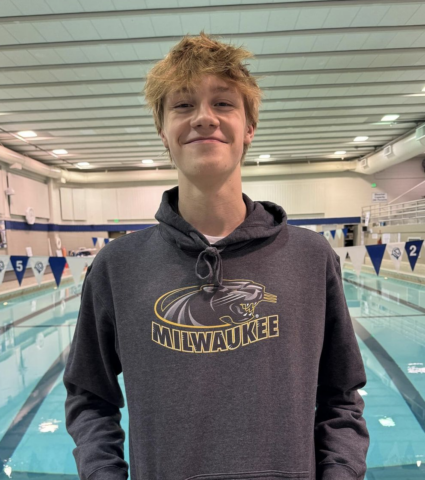
World Athletics president explains the thinking behind “historic” move to award $50,000 to Olympic gold medallists in Paris
Seb Coe insists that World Athletics’ move to become the first international sports governing body to award prize money at the Olympic Games is the latest step in a commitment to improve the support given to athletes.
In what the organisation described as a “landmark”, “historic” and “pivotal” moment, it was announced that Olympic gold medallists in athletics disciplines at this summer’s Games in Paris will each receive $50,000.
A total prize pot of $2.4 million has been ring-fenced from the International Olympic Committee’s (IOC) revenue share allocation, which is received by World Athletics every four years. The $50,000 prize will go to winners of the 48 track and field events, with athletes in relay teams sharing the money.
There is a further commitment to extend the prize money at a tiered level to Olympic silver and bronze medal winners at the LA Olympics in four years’ time.

Elaine Thompson-Herah celebrates 100m victory in Tokyo (Getty)
“I’ve always been committed where I possibly can to making life a little bit easier for the athletes and I hope this does that,” said Coe, the men’s Olympic 1500m champion in 1980 and 1984. “There is a big distinction between our World Championships and the Olympic Games so if that contribution helps in allowing an athlete to stay in the sport for a little bit longer or to prepare in a more cohesive or strategic way then there’s a welfare element in all of that as well.
“It’s 40 years this year since I competed in Los Angeles. The world has changed a lot since then. When I started out in the British team, it was a 75p meal voucher, a second-class rail ticket or 10p a mile petrol or whatever was cheaper.”
Asked if it was right that additional money would be going towards athletes already at the top end of the earning scale in the sport when there are others who are operating on a financial knife edge, Coe added: “This is one element of the support mechanisms that we have in play in world athletics.
“Over the course of a four-year cycle, we commit $24 million to all our events, including World Championships indoors on our race walk cross country, World Youth, World Junior Championships, and this is an additional prize money pot of $2.4 million on top of that.
“Over the course of just one year, some $13 million goes into the development of our sport – so that’s north of $50 million over that four-year cycle. Then of course we fund the Athletic Integrity Unit, which is also there to protect the birthright of the athletes and their ability to compete in a drug-free environment. We are doing all sorts of things to meet with those challenges.”

Seb Coe (Getty)
The IOC responded to the move by stating: “It is up to each International Federation and National Oylmpic Committee to determine how to best serve their athletes and the global development of their sport.”
To some, paying competitors will go against Olympic the spirit. Asked what he would say to that more view, Coe responded: “To be honest, if I’d been asked this question 30 or 40 years ago, I’d have probably been in that camp too but I fundamentally understand, by spending a large portion of my time with athletes, the pressures they’re under now the world has dramatically changed.”
He added: “I think you would find the single biggest contributor over the career of an athlete will be friends, family, local communities and modest contributions at a local level to get careers kick started.
“And remember an athlete will often have been out there in dedicated training, relying on the largesse of family and friends for the best part of a decade before they make it to the public visibility that a podium finish gives them.
“I know that an athlete winning an Olympic title, you can’t really put a monetary value on it, but you do know there will be some sources of finance available. This is our way of reflecting modestly that we understand what this process is about and to help move that financial viability.
“So I don’t really see this being at variance with the overwhelming principle over the welfare of the athletes, the ability of the athletes to compete and to train, and to have the wherewithal to do it safely and securely. I think that is being met here. I think it is the right thing to do, we will continue to do that and hopefully, as we grow the sport, we can be more expansive in what we can do.”
» Subscribe to AW magazine here
Seb Coe: “I’ve always been committed to making life a little easier for athletes” appeared first on AW.

















You must be logged in to post a comment Login